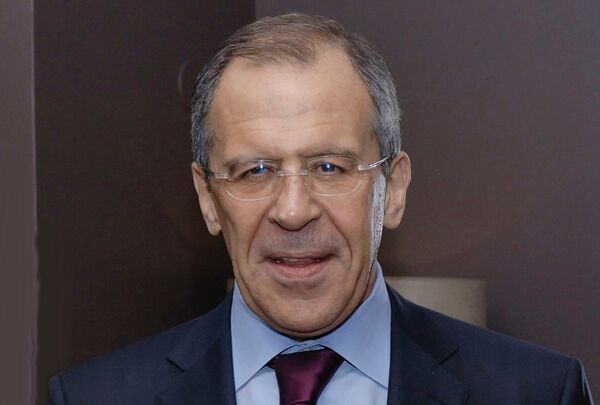MOSCOW, May 20 (RIA Novosti) - Russian Foreign Minister Sergei Lavrov said on Wednesday that a new Russian-U.S. strategic arms reduction treaty must be based on the principle of equal security for both countries.
A team of U.S. negotiators led by Assistant Secretary of State Rose Gottemoeller is currently in Moscow for the first two-day round of official bilateral talks on a replacement for the Strategic Arms Reduction Treaty (START), which is set to expire on December 5, 2009.
"Equal security and parity in the sphere of strategic stability should be the main principle of a new agreement," Lavrov told a news conference after talks with Egyptian Foreign Minister Ahmed Ali Aboul Gheit in Moscow.
"This goal cannot be achieved without taking into account the situation in the sphere of missile defense, and other aspects, such as the possible deployment of weapons in space and plans to make conventional warheads. I hope that all these factors will be fully accounted for," the top Russian diplomat said.
The Strategic Arms Reductions Treaty (START 1), signed in 1991, obliges Russia and the United States to reduce nuclear warheads to 6,000 and their delivery vehicles to 1,600 each.
In 2002, a follow-up agreement on strategic offensive arms reduction was concluded in Moscow. The agreement, known as the Moscow Treaty, envisioned cuts to 1,700-2,200 warheads by December 2012.
According to a report published by the U.S. State Department in April, as of January 1 Russia had 3,909 nuclear warheads and 814 delivery vehicles, including ground-based intercontinental ballistic missiles (ICBM), submarine launched ballistic missiles (SLBM) and strategic bombers.
The same report stated the United States had 5,576 warheads and 1,198 delivery vehicles.
Moscow, which proposed a new arms reduction agreement with Washington in 2005, expects the United States to agree on a deal that would restrict not only the numbers of nuclear warheads but also place limits on all existing kinds of delivery vehicles.
"The final result of the talks should certainly be a step forward compared to the current regime of limitations," Lavrov said.




